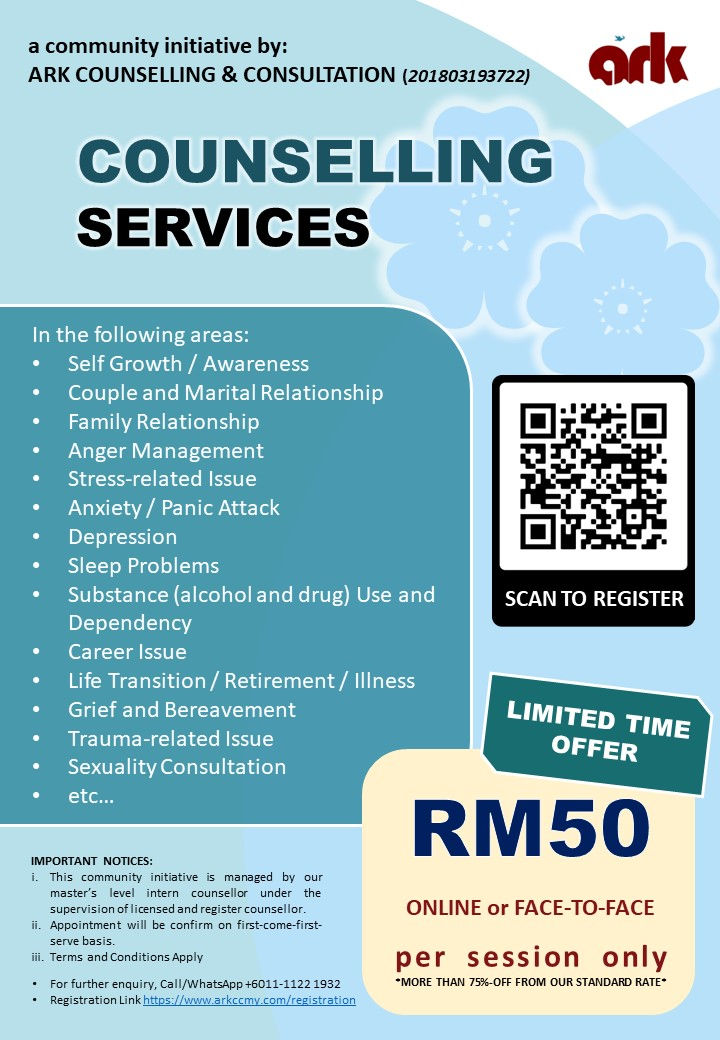8 Common Challenges to Accepting a Mental Health Problem
- ARKCC

- Nov 22, 2019
- 3 min read
Updated: Dec 14, 2019
1. Emotional Barrier
Feelings can get in the way of acceptance, people tend to feel shame and despair that get in the way of accepting a mental health problem.
What could be helpful?
Feelings like hope, pride, or even fear could motivate recognition of a mental health problem.
2. Behavioural Obstacle
Certain actions or inactions might block acceptance, i.e. avoidant and maladaptive behaviours could led to greater denial. These inactions might include skipping appointments or social activities that bring a sense of wellness and connection.
What could be helpful?
Scheduling positive activities and committing to them often helped with accepting and managing a mental health problem.
3. Cognitive Challenges: Thoughts and Beliefs
Cognitive challenges in acceptance can include things like a lack of clarity or negative thinking.
What could be helpful?
Cultivate and promote sense of awareness and self-reflection. “Just thinking about what’s going on with me. Just knowing my issues, just knowing my problems, just knowing how I act on a regular basis, [helps] accept it.”
4. Identity or Sense of Self
Acceptance can be a process of identity development, involving integrating a new sense of oneself as a person with a mental health problem into one’s identity in a positive way. But if you have negative associations of people with mental health problems being inferior, this can be a challenge to overcome.
What could be helpful?
Think from different perspective, having a mental health problem can also lead to positive identities, such as being a strong and resilient person for making it through, or serving as a role model or advocate for others.
5. Relationships that is Not Supportive
“When other people don’t accept you as you are, it’s really hard to accept depression”. A lack of acceptance and support from other people can be a key problem to accepting a mental health problem.
What could be helpful?
This relational obstacle to acceptance also speaks to the need of the broader society to promote acceptance and eliminate stigma as a community, rather than expecting people with mental health problems to do the work of acceptance on their own.
6. Cultural Factors & Stigma
Stigma can be particularly prominent depending on one's cultural values, beliefs, and practices. In Asian culture, for example, there's a common stereotype that people with mental health problems are Weak and Crazy. Or, given our individualistic, productivity-oriented culture, one may encounter prevailing beliefs that people with mental health problems are a “drain” on society.
What could be helpful?
However, there might be other cultural supports or beliefs that offer resources and support that foster acceptance, like some biomedical treatments, or an emphasis on education and learning about mental health problems to spread awareness.
7. Religious & Beliefs
Depending on an individual's religious and spiritual backgrounds, they might feel they are being punished by God for their mental health problems, or believe that they could be cured through spiritual practices that might be ineffective or even harmful.
What could be helpful?
Be aware of how your religious beliefs affect you. In other cases, one’s religious community and practices might be a source of inclusion, encouragement, and healing that can be extraordinarily helpful to acceptance.
8. Institutional Factors
Institutional factors at the systemic level can interfere with acceptance. People might be ostracized at work or school because of a mental health problem. They may be failed by the policies in health care or local politics in their region.
What could be helpful?
Do not be hesitate to seek for helps and supports. Access to adequate resources can be transformative to boosting acceptance of a mental health problem and offering the right tools to do so.
The process of acceptance can be complex, involving a number of challenges that arise at different times for different people. But with each barrier can come an adjacent facilitator to the acceptance process, whether emotional, behavioral, relational, cultural, or otherwise.
References:
Mizock, L., & Russinova, Z. (2016). Acceptance of mental illness: Promoting recovery among culturally diverse groups. Oxford University Press.





Comments